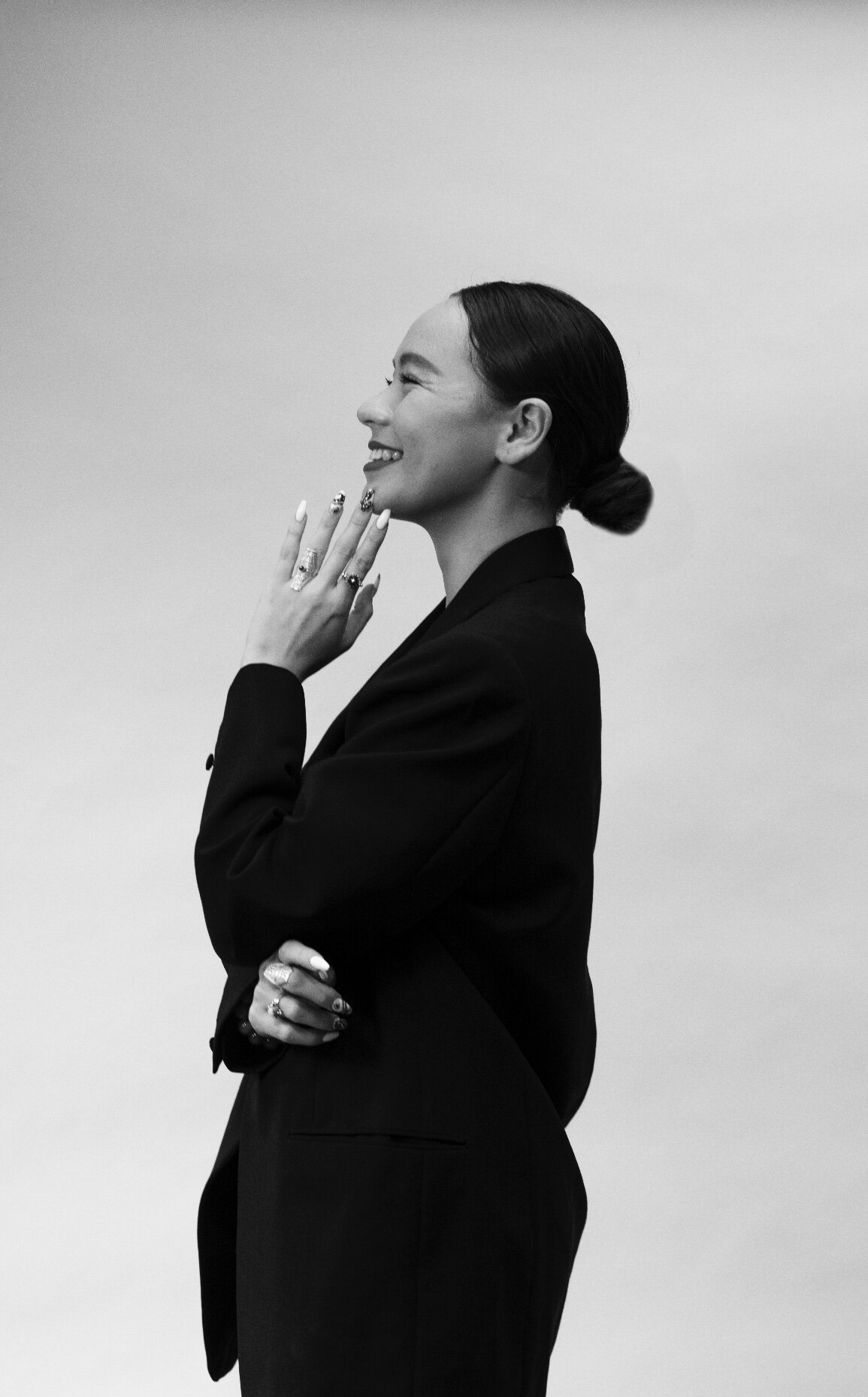Everyone’s Invited : An Interview With Soma Sara
On the 24th of June, Soma Sara began sharing her personal experience of rape culture to her Instagram followers via her stories. Immediately, she was inundated with messages not only from those who felt that her experiences resonated with their own, but also from those who detailed their own stories of harassment and abuse.
Within a week she had received and shared over 300 anonymous responses, reaching almost 9,000 people around the world.
PHOTOS BY TILLY PEARSON
Rather than running away when the overwhelming amount of responses flooded in, Soma realised that this was not something to forget about and move on from. Making the most of the growing momentum & new influential voice she had found, she used the information & stories received as fuel to create Everyone’s Invited.
“I wanted to do everything in my power to continue this essential conversation by giving these stories a more permanent platform.” Soma Sara
“Everyone’s Invited is a movement committed to tackling rape culture. We aim to open up the dialogue surrounding rape culture to raise awareness and work towards a more equal society.”
For a project that’s only three months old, it has already resulted in a meaningful correspondence with the headmaster of Eton College and has also gained huge traction from all over the world… primarily across the pond, with model and founder of the Paul Walker foundation, Meadow Walker becoming an integral part of the team and taking the project state-side.
We are blown away with the work that has gone into this project and the impact it has already had on it's followers. This is just the start for ei and we can’t wait to see how it continues to change the world.
LB: Why did you initially start sharing people's stories on your IG account?
SS: To shed a light on the prevalence and systemic issue of rape culture, an issue that permeates our schools, personal & professional relationships and daily lives. I strongly believe in the importance of giving survivors an open, anonymous platform for their stories to dismantle the stigma and shame that surrounds sexual violence.
Why then? What was the catalyst?
The London my friends and I grew up in was characterised by an endemic rape culture. Misogyny and sexism was the bedrock of this culture - an unforgiving, ruthless environment where everyone was complicit in the violence that thrived.
Can you describe the response you got?
The response was overwhelming, triggering but incredibly encouraging. I have formed the most intimate and profound connections with those that shared their stories and experiences with me. Although the week was psychologically & emotionally challenging, the intimate conversations that I had were some of the most important and meaningful of my life so far.
Why did you decide to take the further step and create EI?
One recurring sentiment from the responses I received was the resurfacing of old wounds and repressed trauma. Creating a support system to address this trauma was crucial to me. I wanted to create a restorative environment where survivors can access the help and support they need. I also wanted to do everything in my power to continue this essential conversation by giving these stories a more permanent platform.
What was your school sex ed like? If you could alter it in any, what would be the main difference?
It was very, very bad. Good sex education would have changed all of our lives. Sex education is the root of the problem. We were not given the support, the language or encouragement to have complicated conversations about rape culture and all the different behaviours and attitudes that perpetuate it. Most of these behaviours are internalised - we often can't even recognise them in ourselves.
Do you think Everyone’s Invited would have been created without lockdown providing people with more time on their hands and a rise in social media activism?
I give lockdown a lot of credit for ei! I don't think it would have been possible if the circumstances were different. Everyone was chained to their phones during lock down. People had the courage to speak out about social issues, many for the first time ever. Social media was dominated by activism, a thirst for learning, education and a powerful desire for BIG, meaningful and sustainable change.
What are you hoping to achieve through EI?
I want young people to live in a world where they do not live in fear of violation, where sexual violence cannot thrive and survivors are listened to, supported and empowered. I also want this world to be empathetic and forgiving, we cannot bring about real change if good intentions are weaponized into cancel culture.
Talk to us about cancel culture.
Having written my dissertation on Margaret Atwood I was inspired by her understanding of feminism and her belief in the universal declaration of human rights as a moral bench mark of humanity. She said "If people end up behaving in anti-human ways, their ideology will not redeem them. All you can do is opt for a society that seems the most humane". This has stayed with me throughout this entire process - we can't weaponise this movement with cancel culture. It's counter-productive, it only isolates and ostracises people. If we cancel people we deny them the opportunity to change. Everyone deserves a second chance. The aim is to help and heal not divide and destroy.
Tell us about how you and the wonderful SHAG are collaborating/working together.
Shag is facilitating our survivor led support group initiative. These weekly sessions are confidential, open and non-judgmental where survivors can find support, validation and community. The founder of Shag, Ellie Softely is a great friend of mine who has supported and encouraged this movement with her wealth of experience, passion for the cause and unrelenting commitment to her work.

